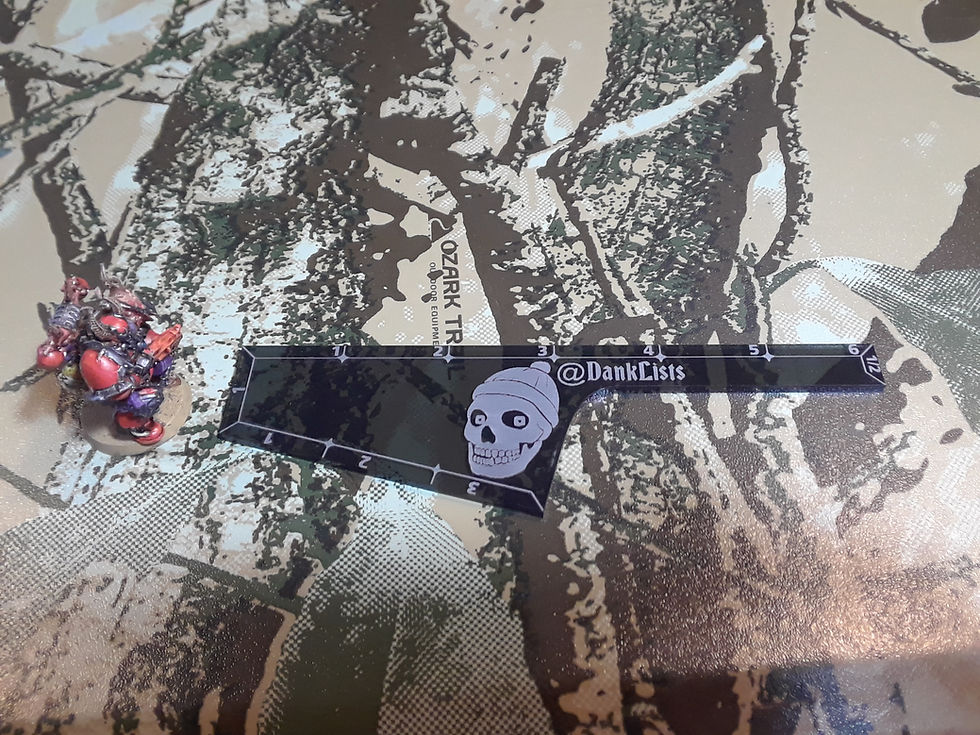
Math and lucky logo together in one place.
Whenever I am forced to choose between trusting my luck or trusting the logic of probability, no matter which option I choose I end up in trouble but that is what makes wargames great and worth playing. Every so often the debate over whether players should believe in their own tales of luck and superstition or the cold calculations of probabilities comes to my attention and I want to say that I personally like a balanced approach but favoring luck because of its cultural benefits.
If you, the reader, and I ever get the wonderful opportunity to play a wargame together, then you will notice I spend a good deal of time running math equations in my head. I try to do this mostly on your turn so I don't bore you with sitting and thinking during my own turn. This being said, I am a magnet of terrible luck. One of the best players on our team once said something to the effect, "If you rolled better, I'd be worried about you." I can run math equations in my head till the cows come home but when the dice hit the table I often find myself on the wrong side of probability.
Some readers might say, "Don't blame the dice, just play better." To a point I agree with this argument because I know I can position myself to avoid dice rolls hurting me. Already my play style reflects a desire to mitigate improbability. I field armies with plenty of models and movement special rules. I build redundancies into my list. I play long and intricate movement, charging, and fight phases in order to get the most out of my models and limit the impact of poor dice rolling. I spend lots of time reading rules articles and watching tactics videos hoping to find the next game mechanic that doesn't rely on dice so my fate isn't left up to the murky waters of probability.
On the flip side, why can't I blame the dice? If wargames simply boiled down to math equations, then there would be no point in actually playing a game. The argument of terrain and deployment doesn't hold too much water with me because good players will marginalize those factors and get down to the business of removing models in a relentless fashion. It's more complicated than simple dice rolls but deployment and terrain still remain under the judgment of mathematics.
I prefer to hear outrageous stories of improbability than hear tales of Helblasters with full rerolls to hit and wound doing exact what math said they would to an Imperial Knight. I want to hear about the Knight that saved all that damage on only a 5+ invulerable save. One of the best examples of this is the Ork Warboss Squig on our team that collects more titles than anyone else on the team because he always put the last wound on the enemy warlord or Imperial Knight. At the dawn of 8th Edition for Warhammer 40,000, my poor Typhus met his doom in the teeth of Squiggy Blight-Biter, Da Muncher of Mech’thulhu, Toothier than Typhus. On a happier note, I remember in 5th Edition a game that went south very quickly for my Tau against a Craftworld Eldar list. My saving grace for that terrible defeat I took happened to be my Crisis Suit Commander winning a combat against Howling Banshees and then killing them all with a sweeping advance.
My favorite part of playing wargames stems from these wacky moments of improbability. If I didn't get to collect and recollect old war stories then I wouldn't be in this hobby. I enjoy having a dice dungeon where my unlucky dice sit in shame. I love that one of our teammates performs special dances to curry favor with the dice gods. I truly enjoy the culture that develops around the dice rolls in this hobby and I feel that strict adherence to probability takes too much of the human factor out of the games. I am in this hobby to spend time with other people after all.
Holding too much faith to math also leads to grief when the improbabilities arise because players don't think it's acceptable to just laugh it off because humor isn't logical. I want to roll 6 6's to wound only to watch my opponent make the exact same roll to save all the wounds. I just shared an improbable event with my opponent and I think both of us should be able to relish the moment.
On the other hand, the path to playing better lies down the road of understanding the probability of events happening. Knowing the math behind sending a squad of Chaos Cultists to fight Space Marine Terminators will prevent one from hoping in the improbability glorious victory for the Dark gods and instead using the Cultists more tactically as a road block behind cover or out of line-of-sight. I believe going to either extreme of luck or math takes wargaming too far in the wrong direction. Both aspects of wargaming provide essential elements to a satisfying experience of wargaming. If forced to choose, however, I will always pick luck because it fosters fun, imagination, and community relationships.

Bình luận